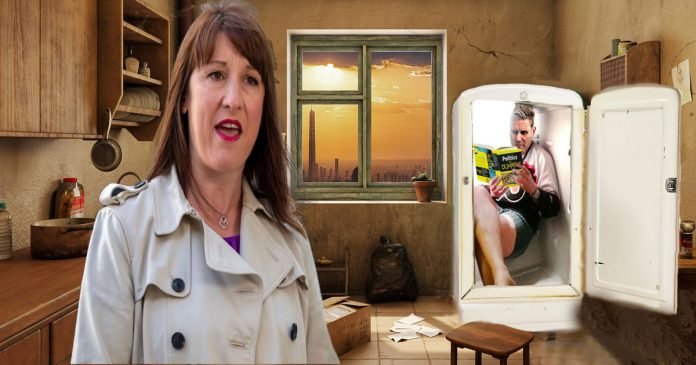While UK Workers face an unprecedented attack from profiteering Energy companies that promise to bring about hardship and debt that has not been seen for generations there has been a distinct lack of leadership and articulated coherent leadership from the country’s opposition Party.
Starmer seems to have gone missing with nothing to say on the subject other than a promise to insulate your home, if Labour ever gains power, reading Labour’s new energy policy is quite embarrassing, Labour state they have a plan to cut energy bills by up to £400 a year by insulating 19 million homes over the next 10 years.
The fact that the energy price cap is now predicted to hit £4,226 in January — an almost £3,000 or 230 percent increase on where it stood in January this year and the next general election is more than likely two years away, makes even that poor policy laughable.
Labour had a perfectly good Energy policy that not just Labour voters but the majority of people supported, public ownership. To substitute that for a promise of a 10-year plan to insulate homes funded by constant windfall taxes feels like a betrayal, a surrender as if Starmer’s job was to destroy the very ideology of socialism.
It makes perfect economic sense to bring Energy into public ownership. The so-called big six are creating debt slaves, charging extortionate rates while controlling the resources of a natural monopoly. Real economic thinking would understand that they are an oligarchy controlling and dictating the economic and social climate, there is no physical reason Energy companies have had to increase charges, other than profiteering.
They are making over 400% profit up on last year. That’s billions every quarter, it is pure greed a flexing of power that has manipulated the economy, forex and the stock market, they have become the Robber Barons of the 21st century.
Every politician should be asked why the French government can limit price increases to 4 per cent when ours are forecast to rise 230 per cent. If the answer is that the French energy system is in public hands, then the solution here is obvious. Nationalise it.
#CorbynWasRight Trending
— Labour Heartlands (@Labourheartland) August 11, 2022
The privatisation of our utilities, which are natural monopolies, has been a failure; people are sick of paying through the nose for a poor service #CorbynWasRight to propose rail, mail and utilities being brought back into public ownership. October 2019 pic.twitter.com/q1v2cW290T
Profiteering Energy companies have created a cost of living crisis, pushing workers and businesses into debt with their extortionate costs.
The question isn’t whether we should nationalise, the question is how can we afford not to?
Only Nationalisation will kerb the power and greed of this oligarchy, only public ownership will bring about a stable market. the model of course would be Frances EDF. Being outside the EU the UK would be able to have full Nationalisation, unlike France which has to abide by EU competition rules, where the maximum amount of the open market they can supply is 80 percent, leaving the rest to private companies.
Of course, it’s very true, Labour is not in power and no matter what policy or solution they propose they cannot implement it. But what Starmer can do is offer the right solution, shouting it from the rooftops, garnering public support and forcing the Tories to act in part or full, adopting Labour’s proposal, its basic politics, force your opponent to do your bidding, it’s a win-win for the opposition.
As Larry Elliot stated: It was Labour who championed a windfall tax and the use of post-Brexit freedom to remove VAT on energy bills – both of which gained such widespread public support that the first was adopted by Boris Johnson at the demand of many Tory MPs and the other is now a key component of Sunak’s leadership campaign.
The party now has a moment to capitalise again, capture the urgency of what is coming this winter – and put to bed those doubts.
Unfortunately, Labour’s energy policy is not the right solution, it lacks in every detail it’s only merit is it will never be implemented.
With Gordon Brown throwing down the gauntlet with his plan to halt a winter energy crisis. His call to revoke the energy price cap and consider nationalising energy firms will attract a lot of attention but fundamentally it is also a chance for Labour to choose to be radical. It is likely to compound calls from activists for the party to find a new sense of urgency.
But Gordon Brown’s proposal also fails when he goes on to suggest this should be a short-term solution and Energy should return to the private sector after a few years.
Richard Murphy has a better grasp of the situation when he declares that the focus of Brown’s proposal is on letting the energy companies survive and not on letting people still live in their homes with heat, food and their bills paid and credit record intact, which is important in the modern world.
To cap all that, what Brown is saying is that the state should absorb energy company losses, and then restore them to private control when profits return. That is madness: the state needs the upside too if it is to provide support or take social advantage of ownership to deliver long-term gains from ownership for the benefit of society as a whole.
So, as I have suggested:
- Change the tariffs by cutting out standing charges and making the charge for consumption progressive, increasing as usage does;
- Put pre-paid meters on the lowest tariff automatically
- Require tariffs to be cut so that if each household paid the same proportion of its income in energy cost none would be in fuel poverty
- Then let the energy companies squeal if they wish if they cannot afford that, and take them into public ownership at rock bottom prices if their business model has failed as a result.
Where is Starmer?
— Owen Jones (@OwenJones84) August 11, 2022
Meanwhile, the millionaire Labour leader and his millionaire shadow chancellor are absent from the debate, missing in action so to speak, maybe their off somewhere trying to understand the anxiousness of a nation of workers worried to the extreme that they may lose all they have worked for in this out of control cost of living crisis.
According to PoliticsHome, the Labour leadership is preparing to make several announcements as households struggle with record-high inflation. Keir Starmer is due to set out the details of the first in a speech as early as next week.
Party insiders told the news website that the first intervention will reflect “the scale” of the crisis and could be revealed as soon as Monday. The reports emerged after the Lib Dems argued this week that the government should “absorb the cost of the upcoming hike in energy bills” with an “energy furlough scheme”.
Writing in The Guardian on Monday, Lib Dem leader and former Energy Secretary Ed Davey proposed a £36bn-a-year scheme alongside an expanded ‘windfall tax’ on oil and gas producing companies, which he said could raise as much as £20bn.
He said the government should scrap the planned £1,400 energy price cap increase in October. The cap, which regulator Ofgem raised by £693 in April, is expected to increase to around £3,400 – a hike of 70%. Cancelling the rise would mean the energy bill for a typical household would remain at £1,971 a year.
A Labour Party adviser dismissed the plan put forward by Davey this week, saying that the policy intervention demonstrated that the Lib Dem’s “reputation for creative accounting” is “alive and kicking”.
It seems that all political Parties are willing to do is use the crisis to attack each other when in truth this is the time for real cross-party collaboration in an attempt to ward off a crisis of this magnitude. a crisis that will not just hit the poor, but all workers and the middle classes, businesses small and large. This should become a priority to resolve and the only real resolution is nationalisation.
It is very doubtful Starmer will get out of the fridge and find some real courage, I won’t be holding my breath, but if he doesn’t then that truly is the end for the Labour Party.
Support Independent Journalism Today
Our unwavering dedication is to provide you with unbiased news, diverse perspectives, and insightful opinions. We're on a mission to ensure that those in positions of power are held accountable for their actions, but we can't do it alone. Labour Heartlands is primarily funded by me, Paul Knaggs, and by the generous contributions of readers like you. Your donations keep us going and help us uphold the principles of independent journalism. Join us in our quest for truth, transparency, and accountability – donate today and be a part of our mission!
Like everyone else, we're facing challenges, and we need your help to stay online and continue providing crucial journalism. Every contribution, no matter how small, goes a long way in helping us thrive. By becoming one of our donors, you become a vital part of our mission to uncover the truth and uphold the values of democracy.
While we maintain our independence from political affiliations, we stand united against corruption, injustice, and the erosion of free speech, truth, and democracy. We believe in the power of accurate information in a democracy, and we consider facts non-negotiable.
Your support, no matter the amount, can make a significant impact. Together, we can make a difference and continue our journey toward a more informed and just society.
Thank you for supporting Labour Heartlands












